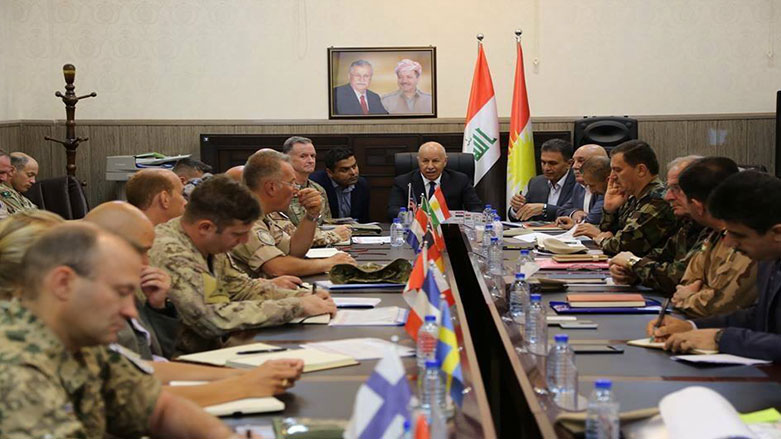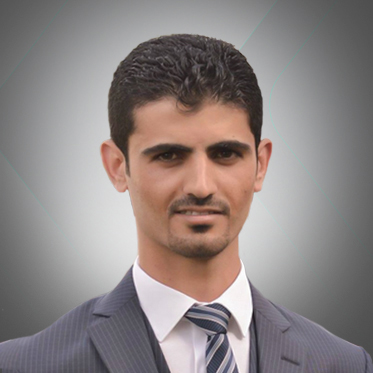Coalition, Peshmerga call for new military, security plans in disputed areas

ERBIL (Kurdistan 24) – The Kurdistan Region’s Peshmerga Forces and the US-led anti-Islamic State (IS) Coalition have called for a new security plan for Kurdistani areas lying outside the administration of the Kurdistan Regional Government (KRG) in the territories disputed between Erbil and Baghdad.
Officials from the KRG’s Ministry of Peshmerga, including Acting Minister Karim Sinjari, and Sarbast Lazgin, Deputy Peshmerga Minister, met representatives of the US-led Coalition in Erbil on Monday to discuss security developments in the disputed areas, a statement from the Peshmerga Ministry explained.
The meeting followed the first joint military operation between the Peshmerga and the anti-IS Coalition, formally known as Combined Joint Task Force-Operation Inherent Resolve (CJTF-OIR), since last fall.
Peshmerga officials and CJTF-OIR representatives assessed the security situation in the contested territories, the statement from the Peshmerga Ministry said, noting that “both sides agreed on the need for an immediate review of security and military plans in the disputed areas.”
Security has been deteriorating in the disputed areas since last fall, when Iraqi forces attacked Kirkuk and other territories under Kurdish control in a military operation engineered by Qassem Soleimani, leader of the Quds Force of Iran’s Revolutionary Guard Corps.
Indeed, on Sunday, the head of the Kirkuk Provincial Council, Rebwar Talabani, advised Kurdistan 24 that the security situation in Kirkuk has become so perilous that it could easily fall to IS.
In Monday’s meeting between CJTF-OIR representatives and Peshmerga leaders, Maj. Gen. Walter Piatt, the Coalition’s Deputy Commanding General for Transition, discussed various military operations.
Piatt praised the Peshmerga for their offensive on Mount Qarachokh over the past two days, which Coalition aircraft had supported.
Piatt affirmed that the operation had accomplished its objectives, and it marked another victory for the Peshmerga against the IS terrorists.
The new commander of the Kurdistan Training Coordination Center (KTCC) briefed the participants in the meeting about the center’s plans for future activities, while he promised that the KTCC would continue its support for the Peshmerga.
Over the past month, senior CJTF-OIR officials have seemed to signal that they are adopting a new approach to ensuring the defeat of IS and they recognize that it cannot be done without the active engagement of the Peshmerga.
Two weeks ago, Kurdistan 24 was invited to attend ceremonies at the KTCC, marking a change of command from Germany to Italy, and a transfer of authority to CJTF-OIR.
Piatt spoke very highly of the Peshmerga then—a “great force” with the “spirit of a soldier”—as did the outgoing and incoming KTCC commanders.
And last week, Kurdistan 24 was invited to accompany Gen. Joseph Votel, Commander of CENTCOM (Central Command), which oversees CJTF-OIR, as Votel relaxed a bit, taking in some Kurdish history, while touring Erbil’s ancient citadel.
Votel emphasized the importance of coordination among the Coalition, Peshmerga, and Iraqi Security Forces (ISF.)
The Peshmerga are certainly willing, but the ISF, seems unprepared, at least so far, to renew their cooperation with the Kurdish force.
Nonetheless, irrespective of what the ISF may decide, it is increasingly clear that the Coalition and Peshmerga are well on the way to renewing their own partnership to ensure the lasting defeat of the so-called Islamic State.
Editing by Laurie Mylroie
